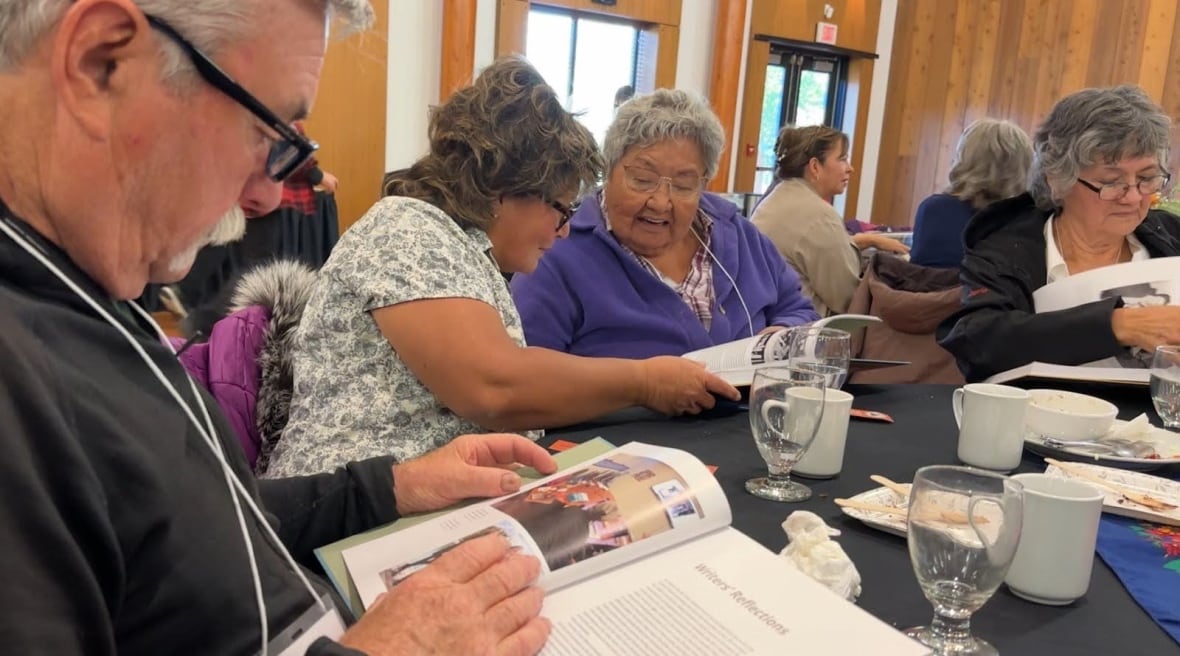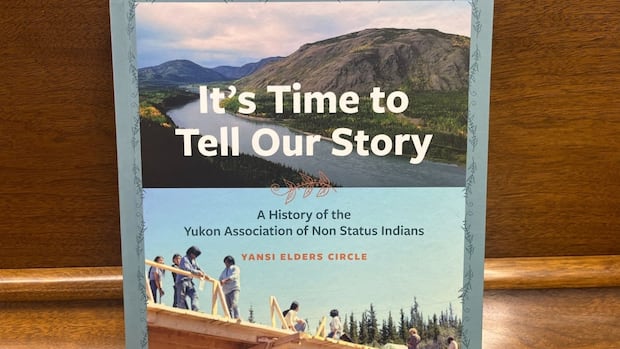The Yukon Association of Non-Status Indians (YANSI) has released a new book called It’s Time to Tell Our Story: A History of the Yukon Association of Non-Status Indians.
The book explores the history of the organization and how the designation of people as status or non-status under the Indian Act affected the lives of Indigenous people in the territory.
The current chair of YANSI said he was pleased with the launch gathering on Sept. 29 and happy that so many people could attend.
“A lot of the elders are still with us … got the stories to tell,” Bill Webber said.
When the Indian Act came into effect in 1876, the Canadian government gave itself the power to determine who was and wasn’t Indigenous. If an Indigenous woman married a non-Indigenous man, she and her children were seen as non-status and would be excluded from certain rights that status people had, as they were excluded from the Indian Act.
YANSI was first created to “represent the people that were not represented under the Indian Act, [and] were excluded from the Indian Act, although they have a lot of Indigenous culture within them,” Webber said.
Interviews with more than 50 elders
The organization developed programs and lobbied the government for changes that would “help make equality happen again,” he said. Their motto was “equal acceptance through equal participation for a balanced society.”
One member of the Whitehorse Women’s Aboriginal Circle who has been involved in YANSI for many years said the book gives students and other people a way to know how the organization came together.”
Susan Power said people interviewed more than 50 elders to get their first-hand accounts into the book, preserving a tradition of oral histories.
It took three years to make, she said.
 Members of YANSI and their families flip through the new book at a launch event Sept. 29. (Cheryl Kawaja/CBC)
Members of YANSI and their families flip through the new book at a launch event Sept. 29. (Cheryl Kawaja/CBC)
Shirlee Frost, a member of the YANSI Elders Circle whose parents were also highly involved with YANSI when she was growing up, said the title of the book “says it all.”
“It’s long past time for the Yukon, the people of the Yukon, the non-status people, to tell their story of history… and the whole claims process and our participation in that, pre-claims,” she said.
Growing up, she added, there was a great divide between status and non-status people, even though everyone was Indigenous.
Margaret Commodore, the first vice president of YANSI, said organizers were so naive in the beginning, they didn’t know how to talk at a microphone.
“But today, sitting here and listening to the story of YANSI almost brought me to tears because I remembered the kind of things that we had to do starting from scratch and making things work,” she said.
“And we were just like ordinary people who work for a living and all of that … I lost my status for almost 30 years. And that’s not easy. It’s not easy when you can’t live on your own reserve, when you’re not eligible for grants, for going back to school…You could not be buried on your reserve. It wasn’t easy.”
The organization printed 500 copies of the book and gave them to members and their families. Public copies can be found at all schools, government offices and libraries in the Yukon. A digital version with recordings from the elders interviewed is also being considered.

